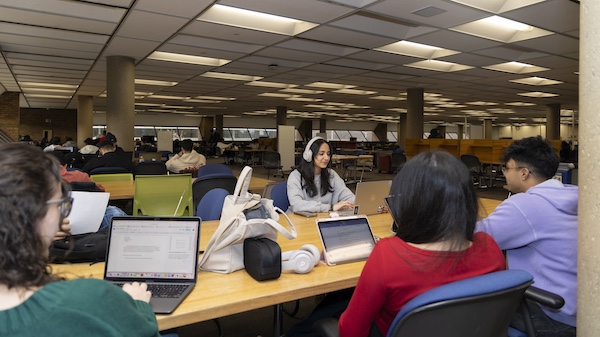Related Resources
Create Your Own Major
 Integrative studies is the most flexible major we offer at the University of Michigan-Dearborn. It lets you customize your degree program to align with your unique interests, career goals, and aspirations.
Integrative studies is the most flexible major we offer at the University of Michigan-Dearborn. It lets you customize your degree program to align with your unique interests, career goals, and aspirations.
Instead of majoring in a single subject, you select three minors–renamed concentrations for the degree–to create a major. The concentrations cover Arabic studies, artificial intelligence, entrepreneurship, environmental science, game design, marketing, music, physics, supply chain management, and women’s and gender studies, among dozens of other subjects.
Where an Integrative Studies Degree Will Take You
An integrative studies degree is your key to a multitude of careers and academic opportunities. Our graduates have used their interdisciplinary knowledge to climb the ranks in a variety of fields. You also can create an excellent foundation for graduate and professional education in fields such as business, counseling, law, public administration, and social work.

